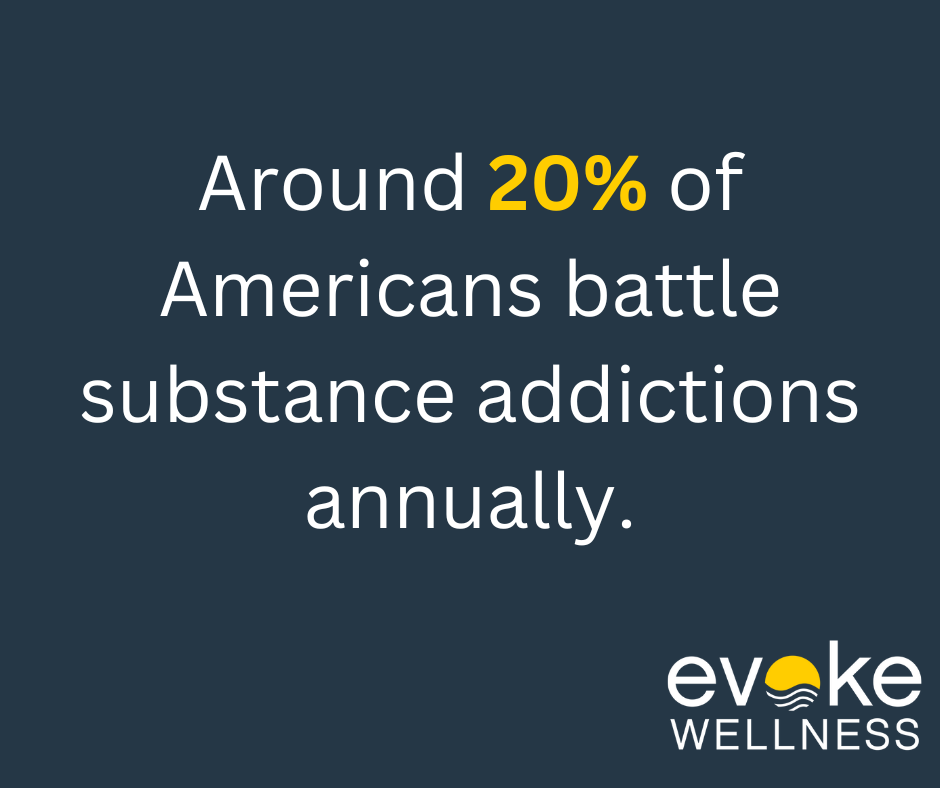Have you ever wondered why some people become addicted while others don’t? The answer lies in the complex models of addiction that researchers have developed over decades. These theories offer crucial insights into the nature of addictive behaviors and inform treatment approaches.
Key Points:
- Addiction affects millions – 21 million Americans had a substance use disorder in 2020
- Models explain biological, psychological, and social factors
- Different theories emphasize various aspects of addiction
As you explore these models, you’ll gain a deeper understanding of addiction’s multifaceted nature. From the disease model to cognitive theories, each perspective sheds light on this challenging issue. Let’s dive into the fascinating world of addiction science and uncover the frameworks that guide modern approaches to prevention and treatment. Call us at (866)429-2960 today or reach out online.
What is addiction?
Addiction is a chronic brain disease characterized by an inability to control substance use despite severe negative consequences. It often co-occurs with mental health issues, where individuals self-medicate with drugs or alcohol.
Addiction’s Powerful Grip
The powerful grip of addiction stems from its effects on the brain’s reward and motivation systems. Addictive substances hijack these systems, causing a compulsive drive to seek and use the substance, even in the face of devastating consequences.
A Multifaceted Issue
Addiction is a complex, multifaceted issue influenced by various factors:
- Genetics play a role, with certain addictions tending to run in families.
- Personality traits like impulsivity and low self-esteem increase addiction vulnerability.
- Social and environmental influences, such as peer pressure and access to substances, shape addictive behaviors.
A Chronic, Relapsing Condition
Overcoming addiction is a formidable challenge. It’s a chronic, relapsing condition that often requires comprehensive, long-term treatment and support. Detox alone is rarely enough, as the underlying causes must be addressed through therapy, counseling, and lifestyle changes.
Biological models of addiction
Genetic Predisposition
Some individuals may have a genetic predisposition to developing addictive behaviors. This genetic model suggests certain addictions can run in families. While genes don’t directly cause addiction, they can influence brain chemistry and increase vulnerability.
Disease Model
The disease model views addiction as an illness stemming from impaired neurochemical processes in the brain. It considers addiction a chronic, relapsing disorder characterized by compulsive substance use despite harmful consequences.
Opponent-Process Theory
According to the opponent-process model, every pleasurable experience is followed by an opposite, unpleasant experience. For instance, the euphoric “high” from opioid use leads to withdrawal symptoms – the opposing psychological event.
The biological models provide insight into how genetics, brain functioning, and neurochemistry contribute to the development and maintenance of addictive disorders. Understanding these factors is crucial for effective prevention and treatment approaches.
Psychological models of addiction
The Disease Model
The Disease Model views addiction as an illness resulting from neurochemical and behavioral impairments. It considers addiction as either present or absent, with individuals powerless over their substance use.
The Moral Model
In contrast, the Moral Model perceives addiction as a personal weakness or character defect that can be overcome through greater willpower.
Other Perspectives
Additional psychological models offer unique perspectives:
- The Temperance Model states abstinence is the only solution, as no moderation is possible with addictive substances.
- The Genetic Model proposes a hereditary predisposition to certain addictive behaviors that run in families.
- The Opponent-Process Model suggests addiction arises from cycles of pleasure followed by opposing unpleasant experiences.
While perspectives vary, these models shape addiction treatment approaches and policies aimed at understanding and addressing this complex condition.
Sociocultural models of addiction
Social Learning Perspective
Some models view addiction through a social learning lens. The social education model sees addictive behaviors as learned through cognitive processes, environmental influences, and genetic/behavioral factors. It emphasizes human-environment interactions shaping addictions.
Cultural Influences
The cultural model suggests cultural contexts strongly influence addiction risk. For example, countries prohibiting alcohol see lower alcoholism rates. As gambling became more available in the US, gambling addictions increased.
Moral vs. Temperance Views
Other perspectives cast addiction in moral terms. The moral model views it as a personal weakness, with willpower as the solution. Conversely, the temperance model sees addictive substances themselves as inherently destructive, requiring abstinence.
Integrated models of addiction
Multifaceted Approach
Integrated models take a comprehensive view. They recognize addiction involves biological, psychological, and social factors interacting in complex ways.
Biopsychosocial Model
- Considers genetic predispositions, brain chemistry, and biological processes.
- Also examines psychological factors like mental health, personality traits, and cognitive distortions.
- Social influences like family, peers, culture, and environment play a role too.
Advantages
This multidimensional perspective provides a more holistic understanding. It accounts for the myriad forces that can contribute to addictive behaviors developing and persisting. Around 20% of Americans battle substance addictions annually, highlighting the need for integrated explanatory models.
Treating and managing addiction
Continuum of Care
Overcoming addiction often requires a continuum of care tailored to individual needs. This may involve medically supervised detox, inpatient or outpatient rehab, and aftercare support. Outpatient treatment allows flexibility while maintaining daily routines, ideal for those with a strong support system.
Intensive Programs
For severe addictions or challenging home environments, inpatient rehab provides 24/7 care and monitoring. Intensive outpatient programs (IOPs) blend inpatient and outpatient benefits, offering structured treatment without residential stay.
Addressing Root Causes
Effective treatment addresses addiction’s underlying causes through counseling, therapy, and lifestyle changes. For co-occurring mental health issues like depression or anxiety, antidepressants may complement behavioral therapies. Managing withdrawal from substances like sedatives often requires medical detox.
FAQs about addiction
What causes addiction?
There are various biological, psychological, and social factors that contribute to addiction. The Genetic Model suggests a genetic predisposition can influence addiction risk. Meanwhile, the Personality Model links certain traits like impulsivity to addictive behaviors.
How does stress impact recovery?
Chronic stress is a major obstacle in addiction recovery. It can trigger cravings, increase relapse risk, and exacerbate mental health issues. Managing stress through healthy coping strategies like exercise, meditation, and support groups is crucial.
What models explain addiction?
Various models attempt to explain addiction, including the Disease Model, which views it as a chronic brain illness, and the Social Learning Model, which sees it as a learned behavior shaped by environmental influences. Understanding these models can guide treatment approaches.
Conclusion
In conclusion, understanding addiction models is crucial for addressing substance abuse effectively. As you’ve learned, these theories provide frameworks for:
- Explaining addictive behaviors
- Developing treatment approaches
- Shaping public policy
Recent statistics underscore the importance of this knowledge:
- In 2021, 46.3 million Americans aged 12+ had a substance use disorder (SAMHSA, 2022)
- Only 10% of those needing treatment received it (NIDA, 2022)
By grasping these models, you’re better equipped to comprehend addiction’s complexity and support evidence-based interventions. Remember, no single model fully explains addiction, but together, they offer a comprehensive view of this challenging issue. Your understanding can make a difference in addressing this critical public health concern.
Begin Your Journey with Evoke Wellness
If you or a loved one is considering treatment, Evoke Wellness invites you to contact us. Our compassionate team is ready to answer your questions, discuss your needs, and help you take the first steps toward recovery. At Evoke Wellness, you will find more than just a treatment program – you’ll discover a community dedicated to your wellness and success. Together, let’s embrace the journey to recovery and the promise of a new beginning. Call us at (866)429-2960 today or reach out online.



